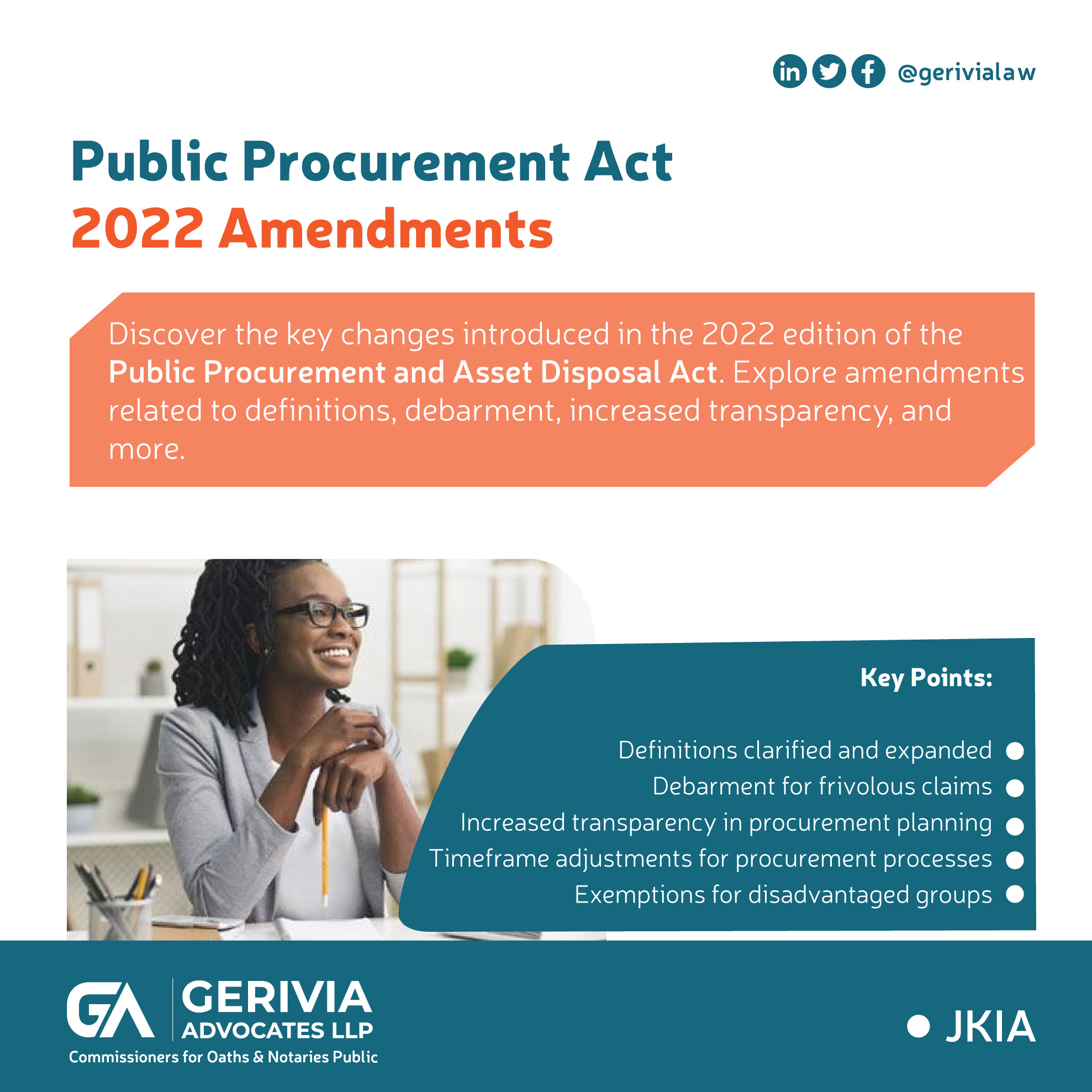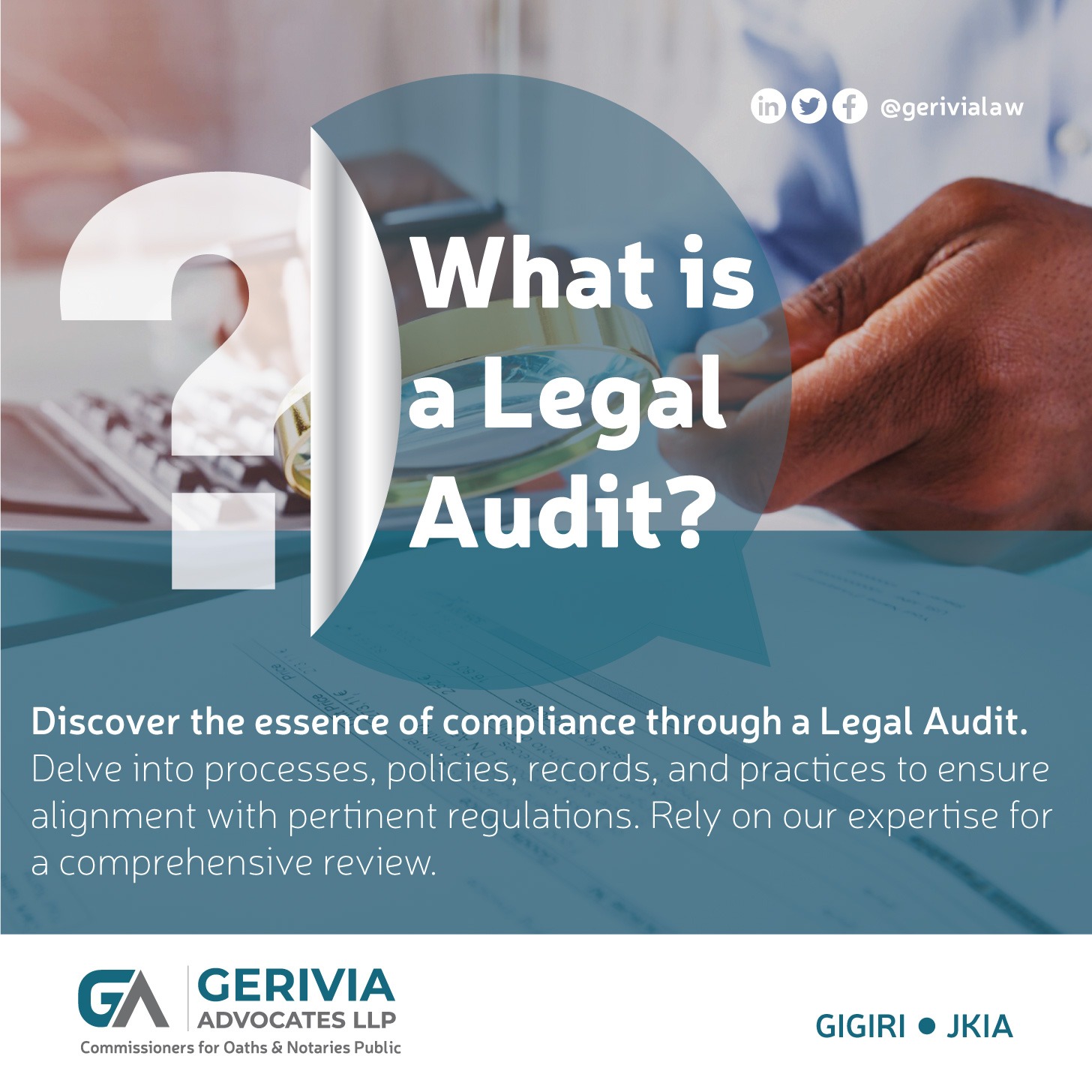Due diligence is the final part of the tender evaluation process. It is also known as post-qualification. The terms due diligence and post-qualification will therefore be used interchangeably throughout this article.
Most, if not all tender documents, provide for the conduct of post-qualification, with a varying amount of detail on the process.
Now that courts have ruled that due diligence is part and parcel of the evaluation process, it would be an anomaly for any tender document and the process of tender evaluation to omit this crucial step.
In order to shed light on the process of due diligence, this two-part article will take the format of answering the following simple questions on the process:
- WHAT is due diligence?
- WHY should due diligence be conducted?
- WHEN should due diligence be conducted?
- On WHOM should due diligence be conducted?
- HOW and WHO should conduct due diligence?
- WHERE should due diligence be conducted?
A comprehensive response to each of the questions highlighted above should leave the reader more enlightened about the process and with sufficient information to enable them to prepare for the exercise, whether from the perspective of the procuring entity or a bidder.
For procurement practitioners who are tasked with conducting due diligence, especially members of the evaluation committee, the answers to the above questions will equip you adequately to discharge your legal mandate.
WHAT is Due Diligence?
Due diligence in the context of public procurement was defined in the case of Republic v Public Procurement Administrative Review Board; Kenya Pipeline Company Ltd & another (Interested Parties) Ex Parte Krohne (PTY) Ltd [2018] eKLR (hereinafter “the Krohne Case”), at paragraph 70 as follows:
70. Due diligence is in this regard defined in Black’s Law Dictionary, Ninth Edition at page 523 as “the diligence reasonably expected from, and ordinarily exercised by a person who seeks to satisfy a legal requirement or discharge an obligation” Diligence on the other hand is defined as “the attention and care required from a person in a given situation”.
A simple explanation on the due diligence process is that while the first three stages of tender evaluation constitute more of a desk/document review of a bidder’s document, post qualification is a practical evaluation process where the procuring entity gets to physically/practically ascertain whether the contents of a bidder’s documents are true.
Section 83 of the Public Procurement and Asset Disposal Act, 2015 (hereinafter “the Act”) contains the following provisions on due diligence/post qualification:
-
-
- Post-qualification
-
(1) An evaluation committee may, after tender evaluation, but prior to the award of the tender, conduct due diligence and present the report in writing to confirm and verify the qualifications of the tenderer who submitted the lowest evaluated responsive tender to be awarded the contract in accordance with this Act.
(2) The conduct of due diligence under subsection (1) may include obtaining confidential references from persons with whom the tenderer has had prior engagement.
(3) To acknowledge that the report is a true reflection of the proceedings held, each member who was part of the due diligence by the evaluation committee shall—
(a) initial each page of the report; and
(b) append his or her signature as well as their full name and designation.
It is clear from the provisions of Section 83 of the Act that for post qualification to be said to have been conducted or conducted procedurally and legally, various procedures need to be followed and specific things need to be done at certain times in the procurement process.
The Public Procurement and Asset Disposal Regulations, 2020 (hereinafter, “the Regulations”) also contain further details on due diligence as provided below:
-
-
- Post-qualification
-
(1) Pursuant to section 83 of the Act, a procuring entity may, prior to the award of the tender, confirm the qualifications of the tenderer who submitted the bid recommended by the evaluation committee, in order to determine whether the tenderer is qualified to be awarded the contract in accordance with sections 55 and 86 of the Act.
(2) If the bidder determined under paragraph (1) is not qualified after due diligence in accordance with the Act, the tender shall be rejected and a similar confirmation of qualifications conducted on the tenderer—
(a) who submitted the next responsive bid for goods, works or services as recommended by the evaluation committee; or
(b) who emerges as the lowest evaluated bidder after re-computing financial and combined score for consultancy services under the Quality Cost Based Selection method.
WHY should Due Diligence be conducted?
Based on the definition of due diligence above, in the Act and the Regulations and also from caselaw, it is clear that due diligence is a duty placed on procuring entities to apply the care and attention required of them to satisfy themselves that the bidder they are intending to entrust with the responsibility of executing the Tender is capable of doing so.
It is a way of confirming and verifying that the information provided by a bidder in terms of their qualifications and experience is accurate. This includes checking aspects such as past performance from previous clients of such a bidder/persons the bidder has had previous engagement.
In PPARB Application No. 134 of 2019, Trident Insurance Company Ltd v Accounting Officer, County Assembly of Nyamira & Anor (hereinafter “the Trident Insurance Case”), the Board after defining due diligence as defined by the Black’s dictionary (as defined above in the Krohne case), went on to note as follows on page 28 of the Ruling:
“According to section 83 of the Act, a due diligence exercise should be conducted by the Evaluation Committee after tender evaluation but prior to award of the tender to confirm and verify the qualifications of the tenderer determined by the Procuring Entity to have submitted the lowest evaluated responsive tender. Section 83 (1) of the Act stipulates that a due diligence exercise is conducted on the lowest evaluated responsive tender to confirm and verify qualifications of such tenderer.” (Emphasis Added)
The reasons why due diligence must be conducted and to a satisfactory level, as opposed to a mere ticking of boxes, has been addressed by the High Court in various cases. It is also clear from the definitions above that the procuring entity must conduct due diligence with an aim of discharging its mandate/legal duty to satisfy itself that the successful bidder is capable of undertaking the works in the subject Tender.
The above position was espoused in Republic v Public Procurement Administrative Review Board & another Ex-parte University of Eldoret [2017] eKLR where the court held as follows:
108. In my humble view, there must be in every tender document, an implied criteria for due diligence without which there can never be an efficient, transparent and or accountable public procurement process. Tenderers would be quoting the lowest figures and once awarded the tenders, then they would be unable to perform or implement public projects, thereby swindling the tax payer of the much hard-earned tax and rendering the whole process a waste of valuable time and financial resources.
109. I would, therefore, without hesitation find that the due diligence complained of is not an additional criteria but is an implied criteria in every tender document, and that the Procuring Entity is under a public duty to carry out due diligence and satisfy itself that the responsive bidders at the technical evaluation stage are capable of implementing the projects before considering the financial aspect for the bidders.
110. In other words, all bidders in all public contracts should expect that they would be evaluated on their capability to implement the projects, notwithstanding their low value bids. [Emphasis added]
The court was simply saying that the purpose of due diligence is to protect public money from being wasted by tenderers who may present a seemingly competitive bid but in actual fact, lack the capacity and capability to implement the tender.
Procuring entities should bear in mind that they are implementing a public duty and as such, they should not compromise or lower the standards of what is “satisfactory” in terms of the due diligence findings as this may have repercussions during contract implementation.
WHEN should due diligence be done?
The provisions of the Act and the Regulations make it clear that the timing of the due diligence is a critical part of the process. Due diligence should be done after evaluation but prior to the award of the tender. This was also the finding of the Board in the Trident Insurance Case above. It follows that any purported due diligence that does not comply with these timelines risks being rendered a nullity.
The issue of timing and purpose of due diligence was also discussed in the case of Miscellaneous Civil Application No. 551 of 2017,
Consortium of H. Young & Co (E.A) Limited & Yantai Jereh
Petroleum Equipment and Technologies Company Limited v Public
Procurement Administrative Review Board & 2 others [2017] eKLR (hereinafter, “the Consortium of H.Young Case”) as follows:
Since the evaluation committee’s parameters of conducting due diligence are circumscribed by the Act, the committee must, in the exercise of that power, confine itself within the four corners of the said provision. If it acts outside the same, it would be construed to have acted outside its powers or in excess hereof. Firstly, the conduct of due diligence pursuant to the said provisions can only be undertaken after tender evaluation, but before the award of the tender. Secondly the purpose of the due diligence is restricted to the confirmation and verification of the qualifications of the tenderer who submitted the lowest evaluated responsive tender to be awarded the contract in accordance with the Act. In other words, the Committee cannot purport to conduct due diligence in respect of any other tenderer save for the lowest. (Emphasis Added)
Another important angle touching on WHEN on matters of due diligence relates to when a bidder should challenge a breach relating to due diligence criteria in the tender document. This issue is best illustrated in PPARB Application No. 124 of 2022 – The Gardens and Wedding Centre v The Accounting Officer, Kenyatta National Hospital and 2 Others.
This was an interesting case with regard to due diligence since the Tender Document provided for an element of due diligence which was to be part of the Technical Evaluation. The due diligence criteria under the technical stage required verification of the registered office, working tools and adherence to labour laws such as checking whether minimum wage is adhered to and work safety issues (see page 15 of the Ruling).
The Applicant complained that this provision of the Tender Document was in breach of Section 83 of the Act which stipulates that due diligence could only be conducted after the end of the evaluation process.
Held: The Board found that it had no jurisdiction to entertain this complain regarding the provisions on due diligence in the tender document since it was made after the 14 days statutory deadline provided in Section 167 (1) of the Act. The bidder ought to have approached the Board at the latest, within 14 days of the tender submission deadline.
It is unclear how the Board would have ruled on this point had the complaint been made within time. However, the Tender Document also provided for post qualification and the Board ordered that the same must be conducted on the lowest evaluated responsive bidder.
On WHOM should due diligence be done?
It is clear from the Act, the Regulations and the two cases cited above (the Trident Insurance Case and the Consortium of H. Young Case) that due diligence should be done on the lowest evaluated responsive bidder or as the Regulations put it, on the bidder who submitted the bid recommended for award by the evaluation committee.
There are times when a procuring entity conducts due diligence on all bidders who make it to the financial evaluation stage, in a bid to save time in case the lowest evaluated responsive bidder does not pass the due diligence stage.
Since such a consecutive approach of conducting due diligence on all bidders who qualify to/past the financial evaluation stage is not supported by law, there is a risk it could be challenged as being illegal since the Regulations make it clear that the due diligence on bidders should be carried out in a sequential manner.
However, the Board has held that even though the law envisages the sequential conduct of due diligence starting with the lowest evaluated responsive bidder and moving to the next if the initial bidder is not found responsive at post-qualification stage, due diligence conducted consecutively on all responsive bidders cannot be said to be fatal to the process.
This was the finding in PPARB No. 161 of 2021 – Pinnie Agency Limited v the Accounting Officer, County Assembly of Kisumu, County Assembly of Kisumu & Astronea Construction Limited where the Board held as follows at page 38:
“As stated earlier the Board has previously determined that the sequence to follow is as set out at Section 83 of the Act. However, the Board is of the view that a deviation therefrom in the manner effected by the Procuring Entity in the present case should not be fatal to the entire process. It is notable that none of the parties has claimed or shown that they were adversely prejudiced by that deviation in the form. To consider that deviation fatal would in the Board’s view be overemphasizing form over substance and the Board therefore finds that the deviation from the form is not fatal in this instance. The legal and economic purpose for which due diligence in public procurement is conducted was met. The Board would however wish to admonish the Procuring Entity and to remind procuring entities of the need to observe and adhere to the process as outlined above.”
There is an indication from High Court decisions that the aspect of “WHEN” due diligence should be conducted should not be treated lightly. In Public Procurement Administrative Review Board; Finken Holding Limited & another (Interested Parties) Exparte Desbro Engineering Limited, the High Court upheld the findings of the Board of when due diligence should be conducted.
In this case, the procuring entity purported to re-evaluate the technical qualifications of a bidder, under the disguise of undertaking due diligence long after the technical evaluation process had been concluded (see paragraph 61 of that Judgement). The court held as follows:
“63. Lastly, the Respondent did not err in its interpretation and application of the law as it is clear from the requirements of section 83 of the Act that due diligence is part and parcel of an ongoing evaluation, and cannot be conducted after the technical evaluation process has been concluded, and even then only of the tenderer who has submitted the lowest evaluated responsive tender, not any other tenderer. This was also the holding of this Court in Republic vs Public Procurement Administrative Review Board and Two Others ex parte Krohne (Pty) Ltd, Nrb H.C. JR Misc. Appl. No 147 of 2018.”
The Board in the above case, as quoted by the High Court in the above decision had held that due diligence must comply with the provisions of Section 83 of the Act by stating the following at paragraph 61 of the Judgement:
“It is the board’s view that once the tender evaluation committee has fully evaluated a tender, Procuring Entity can only undertake due diligence under the provisions of Section 83 of the Act on the bidder who has been determined to be the lowest evaluated bidder. The Procuring Entity cannot therefore re-evaluate the technical qualifications of a bidder under the disguise of undertaking due diligence after the technical evaluation process has long been concluded.”
It may not be advisable for a bidder to challenge a procurement process only on the basis that due diligence was not conducted in the correct order since the Board might rule that it was not prejudicial to the bidder or may order that the same be repeated in the correct order.
Conclusion
A look at the elements of what due diligence is, why it is important, when it should be conducted and on whom provides some foundational knowledge on the post qualification process and a good guide for both bidders and procuring entities.
The next part of this article on due diligence will focus on how this process should be conducted, looking at specific aspects such as the effect of negative due diligence findings.




